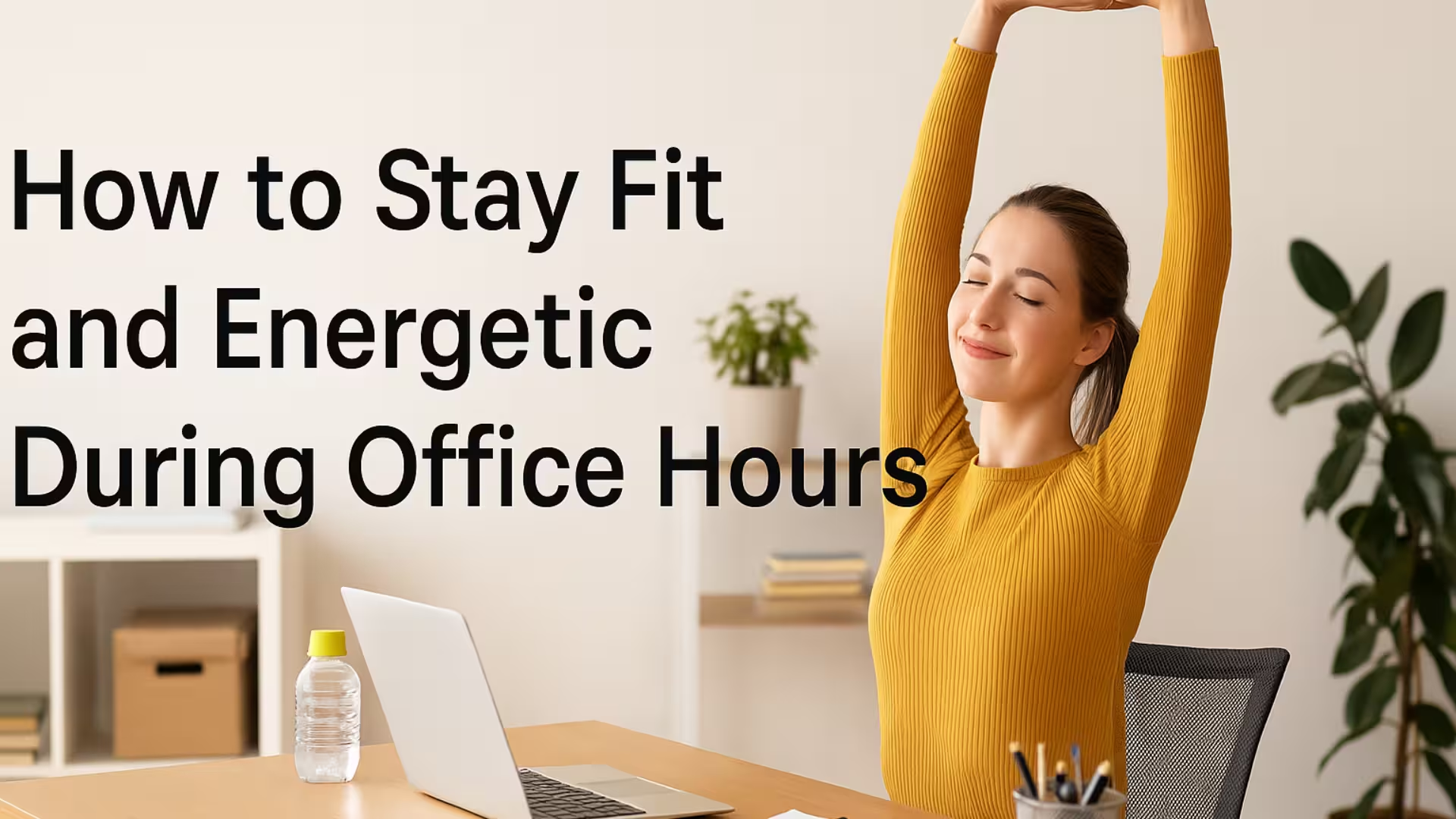Let’s be honest—staying active and energized during office hours is tough. Between back-to-back meetings, endless emails, and long hours at the desk, it’s easy to feel drained by mid-afternoon. But the good news? You don’t have to completely change your lifestyle to feel better at work. A few small shifts in your daily routine can make a big difference.
Here are some practical, realistic ways to stay fit and full of energy—without leaving the office or interrupting your workflow.
Move a Little Before You Start Work
Ever notice how you feel more awake after a quick walk or a few stretches? That’s because movement wakes up your muscles and brain. Even if it’s just 15 minutes in the morning, getting your body moving can set the tone for the rest of your day.
You don’t need a gym. A quick home workout, a brisk walk, or some simple stretching can do wonders. It boosts your blood flow, improves focus, and helps fight off that early morning sluggishness.
Don’t Skip Breakfast
We hear it all the time—but it’s true. Breakfast really is important. If you start your day with sugary cereals or skip breakfast altogether, you’re likely to crash by 10 a.m.
Try something simple but balanced: eggs, whole-grain toast, some fruit, or Greek yogurt with nuts. You’ll feel more focused and energized—and way less tempted to raid the vending machine later.
Watch Your Posture
Slouching at your desk doesn’t just look bad—it actually zaps your energy. Poor posture can lead to back pain, neck stiffness, and even fatigue. So make a few tweaks:
- Sit up straight with your shoulders relaxed
- Keep both feet flat on the floor
- Position your screen at eye level
- Use a chair that supports your lower back
If you can, try standing for part of the day or using a desk converter.
Drink Water—Not Just Coffee
Coffee’s great for a morning boost, but don’t forget water. Dehydration can sneak up on you and make you feel tired or foggy. Keep a water bottle at your desk and sip throughout the day.
A helpful trick? Set a reminder every hour to take a few sips. Your brain, skin, and energy levels will all thank you.
Choose Smart Snacks and Lunches
Heavy, greasy lunches can make you want a nap by 2 p.m. Go for meals that give you long-lasting energy instead:
- Grilled chicken or tofu
- Brown rice or quinoa
- Lots of colorful veggies
- Healthy snacks like almonds, fruit, or hummus
Planning your meals ahead helps you avoid unhealthy last-minute choices.
Take Short Movement Breaks
Sitting for hours without moving is hard on your body. Try to get up at least once every hour—even just to stretch, grab water, or walk around for a minute or two.
It might seem small, but these little breaks wake you up, loosen your muscles, and reset your focus.
Do Desk-Friendly Exercises
You don’t need to hit the gym to stay active. There are plenty of quick exercises you can do right at your desk:
- Seated leg lifts
- Shoulder rolls
- Neck stretches
- Ankle circles
They’re easy, they don’t take long, and they keep your body from getting stiff and tired.
Breathe and De-Stress
Stress drains your energy fast. When things get overwhelming, take a moment to pause. Deep breathing, short walks, or even a quick mindfulness app session can help you reset.
Also, try to organize your tasks so your day feels more manageable. Less stress = more energy.
Make Your Workspace Work for You
A clean, well-lit workspace can do wonders for your mood and energy. If possible:
- Let in natural light
- Declutter your desk
- Add a plant or two
- Keep everything you need within easy reach
When your space feels good, so do you.
Sleep Well the Night Before
Finally, don’t underestimate the power of a good night’s sleep. No matter how healthy you eat or how much water you drink, if you’re not sleeping well, you’ll feel tired all day.
Aim for 7–9 hours of quality sleep. Stick to a routine, keep screens out of your bedroom, and wind down properly before bed.
Conclusion
Staying fit and energized during office hours isn’t about making big, dramatic changes. It’s about being intentional with small habits that support your health throughout the day. Whether it’s stretching between tasks, choosing a lighter lunch, or simply drinking more water, these minor adjustments can have a big impact.










